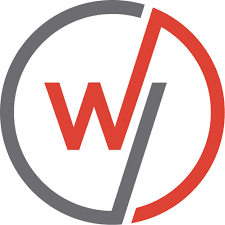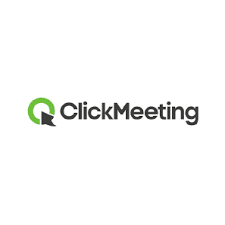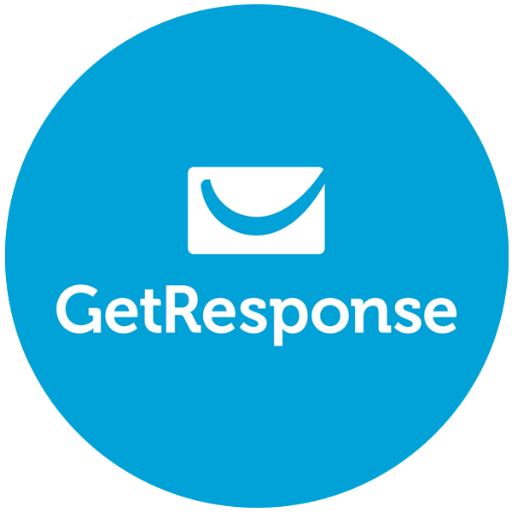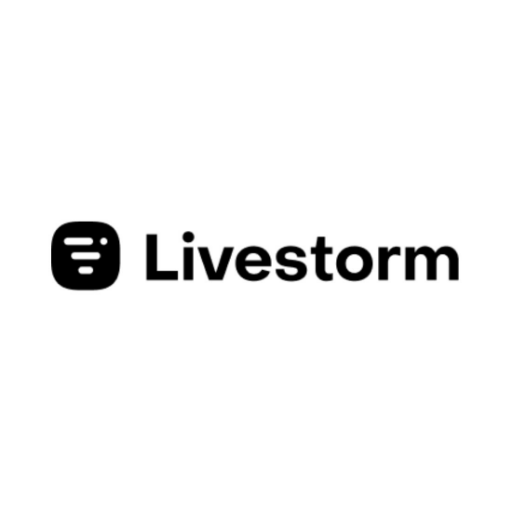Best Webinar Platforms for Small Business in 2026
Explore the Best Webinar Platforms for Small Business: Top Solutions for Effective Online Events
Updated On Feb 2026
2,122 Reviews Studied

- Meetings: High-quality video conferencing for seamless collaboration.
- Team Chat: Integrated messaging for instant communication.
- Phone: Cloud-based phone system with advanced features.
- Webinars: Host large-scale webinars with interactive tools.
- AI Companion: Enhance productivity with AI-driven features.
- Integration: Supports a wide range of apps and CRMs.
- Security: Robust encryption and compliance certifications.
- Flexibility: Solutions for education, healthcare, government, and more.
- Global Reach: Trusted by top organizations worldwide.
- Virtual Backgrounds: Customize your video background for a professional look.
- Recording and Transcripts: Automatically record meetings with searchable transcripts.
- Breakout Rooms: Facilitate small group discussions within larger meetings.
- Screen Sharing: Share your screen or specific applications during meetings.

- Live and Automated Webinars: Supports up to 5,000 attendees and six presenters.
- High-Definition Video: Ensures clear video quality.
- Real-Time Engagement: Includes live chat, Q&A sessions, polls, and surveys.
- Automated Recordings: Sessions are automatically recorded.
- Device Compatibility: Works seamlessly across various devices.
- Multilingual Support: Accommodates presentations in multiple languages.
- Integration: Compatible with CRM systems.
- Panic Button: Provides a solution for technical issues.
- Additional Tools: Features like an attendee spotlight and drawing board enhance engagement.
- Flexible Scheduling: Options for single sessions, recurring series, or always-on live rooms.
- Automated Agenda Planning: Streamlines webinar flow.
- Comprehensive Analytics: Tracks attendee engagement and performance metrics.
- Registration Pages: Customizable and optimized for conversions.
- Email and SMS Notifications: Automated reminders and follow-ups.
- Integration with Marketing Tools: Supports a wide range of marketing software.
- Interactive Elements: Includes clickable offers and call-to-action buttons during webinars.

- Live Webinars: Host real-time, interactive sessions.
- Automated Webinars: Schedule and automate webinar sessions.
- Engagement Features: Use polls, handouts, and featured actions to boost participation.
- Customizable Registration Pages: Tailor registration forms to capture attendee information.
- Email Notifications: Automated, branded email reminders and follow-ups.
- CRM Integration: Connect with marketing automation platforms and CRM systems.
- Engagement Analytics: Track attendee engagement and performance.
- No Downloads Required: Webinars are accessible via browser.
- On-Demand Webinars: Make recordings available for later viewing.
- High-Quality Streaming: Ensures professional video and audio quality.
- Conversion Tracking: Identify and nurture high-intent leads.
- Branding Options: Customize the webinar environment with your brand elements.
- Real-Time Chat: Foster interaction with real-time chat and Q&A.
- Mobile-Friendly: Accessible on various devices.
- Customer Support: Reliable and responsive support team.

- Customizable Modes: Tailor events to your needs.
- Interactive Features: Engage attendees with polls, handouts, and Q&A.
- High Scalability: Host up to 3,000 attendees without downloads.
- HD Video and Audio: Ensure clear and professional presentations.
- Multi-Presenter Webinars: Up to six organizers can present.
- Pre-Recorded Webinars: Perfect content before sharing.
- CRM Integration: Seamless lead tracking and management.
- Enterprise-Grade Security: Protects data and ensures smooth events.
- Engagement Dashboard: Monitor and enhance audience interaction.
- Comprehensive Analytics: Detailed reports for improving strategy.
- Custom Registration Forms: Capture necessary attendee information.
- Stripe Integration: Secure and easy payment processing.
- Automated Communication: Invite, remind, and follow up with ease.
- Source Tracking: Identify most effective channels for signups.
- Trusted by Top Organizations: Over 2.8 million events hosted annually.

- Live Webinars: Host real-time interactive sessions.
- Automated Webinars: Schedule and automate your webinars.
- On-Demand Webinars: Make webinar recordings accessible at any time.
- Paid Webinars: Sell access to your webinars and online courses.
- Huge Virtual Events: Stream content to up to 10,000 attendees.
- Customizable Registration Forms: Tailor forms to gather specific attendee information.
- Engagement Tools: Use polls, Q&A, and chat to interact with attendees.
- Screen Sharing and Breakout Rooms: Enhance collaboration during webinars.
- Integration: Connect with popular CRM and marketing tools.
- Analytics: Get detailed insights into webinar performance.
- Security: Enterprise-grade encryption and compliance.
- Mobile Accessibility: Attend and host webinars on mobile devices.
- User-Friendly Interface: Easy setup and management.
- 24/7 Customer Support: Reliable assistance for all users.
- Custom Branding: Personalize the webinar environment to match your brand.

- Webinars and Virtual Events: Host interactive webinars and virtual events with ease.
- Hybrid Events: Seamlessly blend in-person and virtual experiences.
- No Downloads Required: Access webinars directly through your browser.
- Customization: Fully customizable event environments and registration forms.
- High-Quality Streaming: Broadcast-quality video content.
- Interactive Features: Engage audiences with polls, Q&A, and handouts.
- Integration: Connect with CRM and marketing automation platforms.
- Comprehensive Analytics: Detailed insights and performance tracking.
- Media Hubs: Create on-demand content libraries.
- Ticketing and Monetization: Built-in tools for ticket sales and revenue generation.
- Networking Tools: Facilitate attendee networking and interaction.
- Mobile Apps: Event access via dedicated mobile applications.
- Security: Enterprise-grade security measures.
- 24/7 Support: Reliable customer support.
- Global Reach: Used by top organizations for diverse events.

- Unlimited Webinars: Host an unlimited number of webinars.
- Large Attendee Capacity: Accommodates up to 1,000 live attendees.
- Multiple Presenters: Share the stage with up to two other presenters.
- Recording Storage: Store up to 20 hours of webinar recordings.
- Flexible Scheduling: Create webinars in minutes with customizable settings.
- Built-In Marketing Tools: Promote events, retarget visitors, and run automated email campaigns.
- Engagement Tools: Use polls, Q&A, chat, and interactive whiteboards.
- Lead Generation: Use on-demand webinars for lead generation.
- Mobile Accessibility: Host and join webinars via mobile devices.
- Detailed Analytics: Gain insights with comprehensive reports.

- Webinars: Host live, on-demand, and automated webinars with rich engagement tools.
- Virtual Meetings: Conduct browser-based meetings with interactive features.
- Hybrid and Virtual Events: Scale internal and external events easily.
- No Downloads Needed: Access via browser.
- Engagement Features: Polls, Q&A, chat, and interactive whiteboards.
- Custom Branding: Personalize registration and event pages.
- Analytics: Detailed performance and engagement tracking.
- Integration: Seamless data transfer with CRM and marketing tools.
- Security: ISO 27001 certified and GDPR compliant.
Best Webinar Platforms for Small Business: Top Solutions for Effective Online Events
Webinar platforms have revolutionized how small businesses engage with their audiences, offering a cost-effective and efficient way to conduct virtual events. These platforms provide tools for live video streaming, audience interaction, and detailed analytics, making it easier for small businesses to connect with their target market, generate leads, and build brand awareness.
Key Features of Webinar Platforms
When selecting a webinar platform, small businesses should consider several key features to ensure they choose the best tool for their needs:
User-Friendly Interface:
- A straightforward, intuitive interface is crucial for both hosts and attendees. The platform should make it easy to schedule webinars, invite participants, and manage events without requiring extensive technical knowledge.
High-Quality Video and Audio:
- The platform should offer high-definition video and clear audio to provide a professional experience. Technical glitches and poor quality can detract from the credibility of the presentation.
Engagement Tools:
- Features like live chat, Q&A, polls, and interactive whiteboards help keep the audience engaged. These tools enable real-time interaction, making the webinar more dynamic and interactive.
Recording Capabilities:
- The ability to record webinars is essential for reaching audiences who cannot attend live. Recorded sessions can be used for future reference, training, or as part of a content marketing strategy.
Customization and Branding:
- Customization options allow businesses to brand their webinar interface, landing pages, and emails. This helps maintain a consistent brand image and enhances the professional appearance of the event.
Integration with Other Tools:
- Seamless integration with CRM systems, email marketing tools, and social media platforms is vital for streamlining processes and maximizing the impact of webinars.
Analytics and Reporting:
- Detailed analytics and reporting tools provide insights into audience engagement, attendance, and overall performance. This data is crucial for evaluating the success of the webinar and making informed decisions for future events.
Security:
- Robust security features are necessary to protect sensitive data and ensure a safe environment for participants. Look for platforms with strong encryption and privacy policies.
Benefits of Webinar Platforms for Small Businesses
Cost-Effective Marketing:
- Webinars eliminate the need for physical venues, travel, and other logistical expenses, making them a cost-effective way to reach a large audience.
Global Reach:
- Webinar platforms allow small businesses to connect with audiences worldwide, breaking down geographical barriers and expanding their reach.
Lead Generation:
- Webinars are an effective tool for generating leads. Attendees who register for a webinar are often more engaged and interested in the topic, making them valuable prospects.
Brand Authority:
- Hosting informative and engaging webinars helps establish a business as an industry authority. Sharing expertise and valuable insights can build trust and credibility with the audience.
Flexibility:
- Webinars offer flexibility in scheduling and content delivery. Businesses can choose to host live events, automated webinars, or on-demand sessions to suit their audience’s preferences.
Improved Engagement:
- Interactive tools like polls, Q&A, and chat enable real-time interaction, making webinars more engaging and effective than traditional presentations.
Enhanced Analytics:
- Detailed analytics provide insights into attendee behavior, engagement levels, and overall webinar performance. This data helps businesses refine their strategies and improve future events.
How to Use Webinar Platforms Effectively
Planning and Preparation:
- Define clear objectives for the webinar, such as lead generation, brand awareness, or customer education. Plan the content, structure, and interactive elements to ensure a seamless presentation.
Promotion:
- Promote the webinar through various channels like email marketing, social media, and your website. Use compelling copy and visuals to attract registrants.
Engagement:
- During the webinar, use interactive tools to keep the audience engaged. Encourage participation through polls, Q&A sessions, and live chat.
Follow-Up:
- After the webinar, send follow-up emails to attendees and those who registered but did not attend. Provide access to the recorded session and additional resources to keep the audience engaged.
Analyze Performance:
- Review the analytics to understand attendee engagement and gather feedback. Use this data to improve future webinars and refine your strategies.
Webinar platforms are an invaluable tool for small businesses, offering a cost-effective and efficient way to engage with audiences, generate leads, and build brand authority. By understanding the key features and benefits of these platforms, small businesses can select the best tool for their needs and host successful webinars that drive growth and success.


